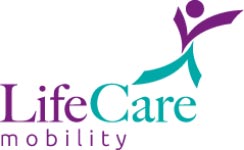According to the Alzheimer’s Association, over 747,000 Canadians are living with Alzheimer’s disease or another dementia. There are at least 44 million people living with dementia across the world. This is an amount greater than Canada’s population. As you’re undoubtedly aware, “dementia” is often used interchangeably with “memory loss”.
The greatest known risk factor for dementia is increasing age. The majority of people with Alzheimer’s are 65 and older. There are, however, a number of ways to assist older adults with their memory.
Take up dancing.
Believe it or not, taking up dancing as a new and fun hobby can be a great way for seniors to generate better memory. Firstly, let it be stated that the activity obviously requires physical exercise. This is highly recommended for people of all ages in order to promote optimum health. Secondly, the act of dancing also encourages older adults to recall their dance steps. Performing a routine requires a recollection of the moves involved in the choreography. As Home Care Assistance affirms, the impact of dance on cognitive health is significant.
“It’s fun, good exercise, social, and it can require hand-body coordination, as well as memory through remembering the steps and moves,” says their website, “It can also be a great antidepressant and antidote for stress. You can dance in the privacy of your own home or engage with others; take a ballroom dance class! Dancing is good for our physical, mental, and emotional well-being.”
Get better sleep at night.
There’s no question that we all need to sleep restfully at night. A good seven to nine hours per night is recommended for all adults. When seniors don’t enough sleep, however, it can wreak havoc on their memory banks. Ruby Cemental of Caring Senior Service informs that, according to the National Sleep Foundation, sleep actually triggers changes in the brain that solidify memories.
“It also strengthens connections between brain cells and helps in transferring memories from short-term to long-term memory,” she writes, “This means the new memories your seniors make are more likely to stay with them…Studies (also) show that if a senior’s sleep is interrupted more than a few times in a night they cannot focus attention as well when awake, and therefore can’t remember what they learned.”
Read.
Reading helps to stimulate the brain. Because reading is a quiet and relaxing activity, many seniors are only too happy to curl up with books. Encourage the elderly loved one in your life to read their favourite novel, magazine or newspaper regularly. As Home Care Assistance points out, such reading materials are easily accessible online.
“Make a habit of sharing what you’ve read with family and friends every day and it will also help fine tune your memory bank,” encourages their website. It also highlights the fact that research has shown that reading can promote longevity.
To learn about how the home health care products offered by LifeCare Mobility Solutions can help your elderly loved one to improve memory, please don’t hesitate to call us at 416-267-9800. You may also email us at info@lifecaremobility.ca or contact us by filling out the form on our Contact page! Be sure to ask us about our home hospital beds which promote better sleep!










